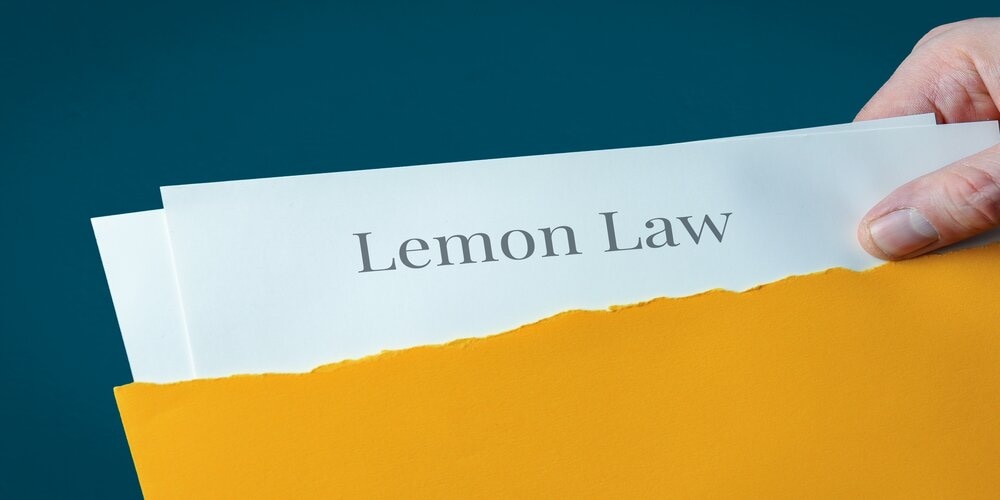The Lemon Law serves as a vital protection for consumers who have found themselves saddled with a defective vehicle. If you’ve experienced recurring issues with your car, understanding the Lemon Law process is crucial. This guide will walk you through the essentials of the Lemon Law, qualifying criteria, common challenges, potential compensation, and when to seek assistance from a lemon law attorney in San Diego.
What is the Lemon Law?
The Lemon Law is designed to protect consumers who purchase or lease vehicles that fail to meet the expected standards of quality and performance. In essence, a “lemon” is a vehicle with persistent defects that impair its use, value, or safety. The law requires the manufacturer to either replace the defective vehicle or refund the purchase price, including costs associated with the vehicle such as taxes, registration fees, and incidental expenses.
In California, the Lemon Law is codified under the Song-Beverly Consumer Warranty Act. This state-specific law offers robust protection for consumers, ensuring that they are not stuck with a defective vehicle. However, navigating the intricacies of this law can be challenging, which is why consulting with a San Diego lemon law attorney is often a wise decision.
Qualifying for Lemon Law Protection: Is Your Vehicle a Lemon?
Not every vehicle qualifies as a lemon under the law. To determine if your car falls under Lemon Law protection, several criteria must be met:
-
Significant Defect: The vehicle must have a substantial defect that impairs its safety, use, or value. This defect must occur within a certain period, typically during the warranty period.
-
Reasonable Repair Attempts: The manufacturer or authorized dealer must have been given a reasonable number of attempts to repair the defect. In California, this is generally presumed to be at least two attempts for a serious safety defect or four attempts for other issues. Additionally, if the vehicle is out of service for more than 30 days due to repairs, it may qualify as a lemon.
-
Notification: The consumer must notify the manufacturer of the defect, usually through the dealer. Proper documentation of repair attempts and communication with the manufacturer is essential.
-
Warranty Coverage: The defect must occur during the warranty period provided by the manufacturer.
If your vehicle meets these criteria, you may be entitled to remedies under the Lemon Law. Consulting with an auto defect attorney in San Diego can help clarify your eligibility and guide you through the next steps.
Common Challenges in Lemon Law Cases and How to Overcome Them
While the Lemon Law provides strong consumer protections, pursuing a claim can be fraught with challenges. Some common obstacles include:
-
Disputes Over What Constitutes a “Significant Defect”: Manufacturers often argue that the defect does not substantially impair the vehicle’s use, safety, or value. Detailed documentation and expert testimony can be critical in overcoming this challenge.
-
Manufacturer Pushback: Manufacturers may resist Lemon Law claims, offering repairs instead of a refund or replacement. In these situations, having a San Diego lemon law lawyer to advocate on your behalf can make a significant difference.
-
Lack of Proper Documentation: Without detailed records of repair attempts, communications with the manufacturer, and the impact of the defect on the vehicle’s performance, your case may be weakened. Keeping meticulous records is essential.
-
Arbitration Clauses: Some manufacturers include arbitration clauses in their warranties, which may require you to resolve disputes through arbitration rather than in court. Understanding your rights and the implications of these clauses is crucial.
Overcoming these challenges often requires the expertise of a seasoned San Diego lemon law attorney who can navigate the legal complexities and advocate for your best interests.
What Compensation Can You Expect Under the Lemon Law?
If your vehicle is determined to be a lemon, you may be entitled to several forms of compensation:
-
Refund: You can receive a refund of the purchase price, including taxes, registration fees, and other related costs. The refund may be reduced by a reasonable amount for the use of the vehicle before the defect was reported.
-
Replacement: The manufacturer may be required to provide a replacement vehicle of the same make and model. If a replacement is provided, it must be of equal value, and you should not incur additional costs.
-
Incidental Damages: You may be compensated for expenses incurred as a result of the defect, such as towing fees, rental car costs, and repair expenses.
-
Attorney’s Fees: In many cases, the Lemon Law requires the manufacturer to pay the consumer’s legal fees, meaning that hiring an auto defect attorney in San Diego won’t necessarily cost you out of pocket.
Understanding the potential compensation available under the Lemon Law can help you make informed decisions about how to proceed with your case.
When to Contact a Lemon Law Attorney for Assistance
Navigating the Lemon Law process can be complex and time-consuming. While some consumers may attempt to handle their Lemon Law claims independently, there are several reasons to consider contacting a San Diego lemon law attorney:
-
Legal Expertise: Lemon Law cases often involve nuanced legal arguments and require a deep understanding of both state and federal laws. An experienced attorney can provide the expertise needed to build a strong case.
-
Maximizing Compensation: An attorney can help ensure that you receive the full compensation you are entitled to, including potential refunds, replacements, and incidental damages.
-
Negotiating with Manufacturers: Manufacturers have experienced legal teams that may push back against Lemon Law claims. Having a San Diego lemon law lawyer to negotiate on your behalf can level the playing field.
-
Avoiding Common Pitfalls: Lemon Law cases can be derailed by procedural errors, missed deadlines, or inadequate documentation. An attorney can help you avoid these pitfalls and navigate the process smoothly.
If you suspect your vehicle may be a lemon, it’s advisable to seek legal counsel as soon as possible. Early intervention can make a significant difference in the outcome of your case.
If you believe your vehicle qualifies as a lemon, don’t navigate the process alone. Schedule a free initial consultation with Premier Legal Center, APC, and contact us at 619-235-0137. Our experienced team is here to help you secure the compensation you deserve.




